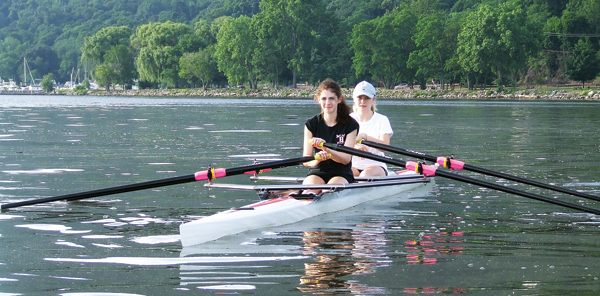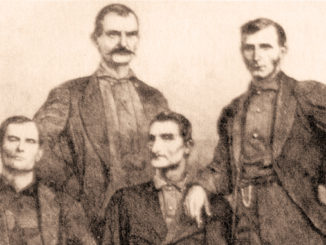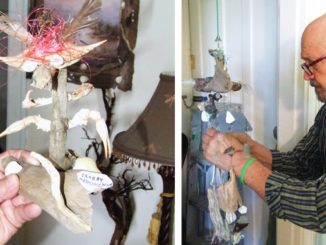
Who says that teenagers like to sleep late? There are two dozen of them at Cornwall Landing at six o’clock on Monday morning. They’re unloading a trailer and carrying racing sculls and oars down to the Hudson River.
The teens are members of the Orange County Rowing Club. Most of them live in Cornwall, but some have to travel to get to the early morning practice. Casey Miller, for example, comes over the mountain from Highland Falls. She graduated from O’Neill High School last month and will be rowing for Bucknell in the future. A few of her clubmates commute from Arlington. They have to leave home before 5:30 to get to practice on time.
The club has 20 teen members, a few adult rowers, and a few people in a “learning to row” program. The newcomers have to pass a swimming test.
During the summer, the rowers are in the water on Mondays through Thursdays, and do land drills for conditioning on the weekend.
On Monday morning the rowers seem wide awake as they lug the equipment down to the river. The stuff isn’t heavy, but it’s expensive. The boats cost $20,000 and they have several costly components — such as oar locks and coxswain boxes. (“Coxswain,” we found out isn’t said the way it’s spelled. Rowers refer to the “cox-un” or the “coxie.” If you said it any other way, people would know you’re an outsider.)
Coach Megan Shedden tells us that the club leases its equipment. She says that the river is usually calm in the early morning. And that’s true on July 3. The surface is smooth and the reflection of the sun forms a golden line from one shore to the other.
Coach Shedden and this reporter take off in a rowboat with an outboard motor. We’re carrying life jackets, since the rowers don’t wear them, and the coach is shouting instructions to the crews.
Most coaches use a megaphone, but given the hour Miss Shedden doesn’t want to be too loud. The trains that pass on the west bank don’t share that sentiment. A few sound their whistles as they rumble through town.
Voices carry on the water. And the rowers have no trouble hearing the coach as she corrects their posture or the position of their hands. Both can impact their performance. Even more important is synchronicity. “You can have the best rowers in the world,” the coach says, “and if they’re not together, they won’t do very well.”
The club will be in two regattas this summer. On Monday we don’t see any racing, although the crews do a thousand meters at a good pace. By 8 a.m., the teens are carrying the equipment back to the trailer, which will remain at the park until Thursday.
For most people the day is just starting. For the rowers, the best part of the day is over.



